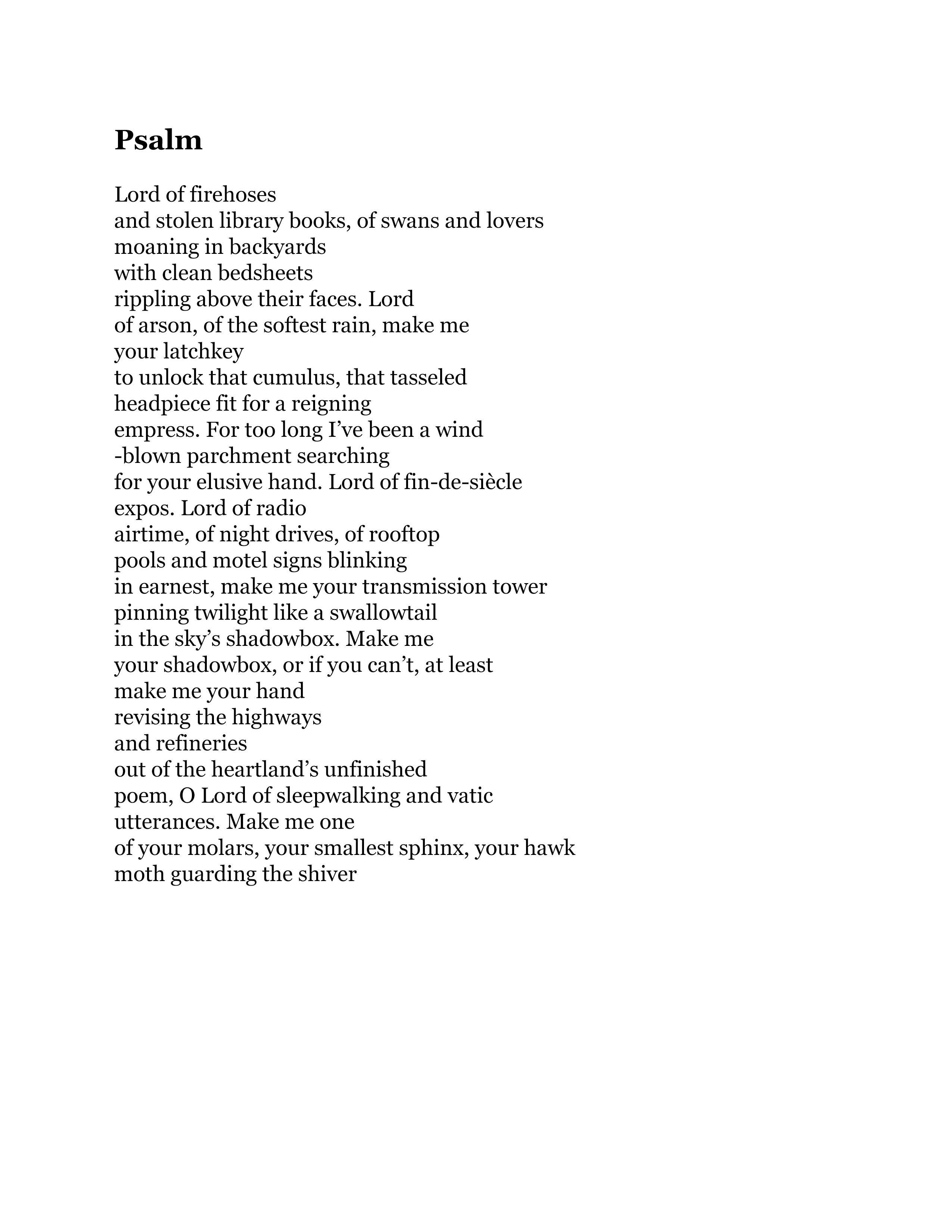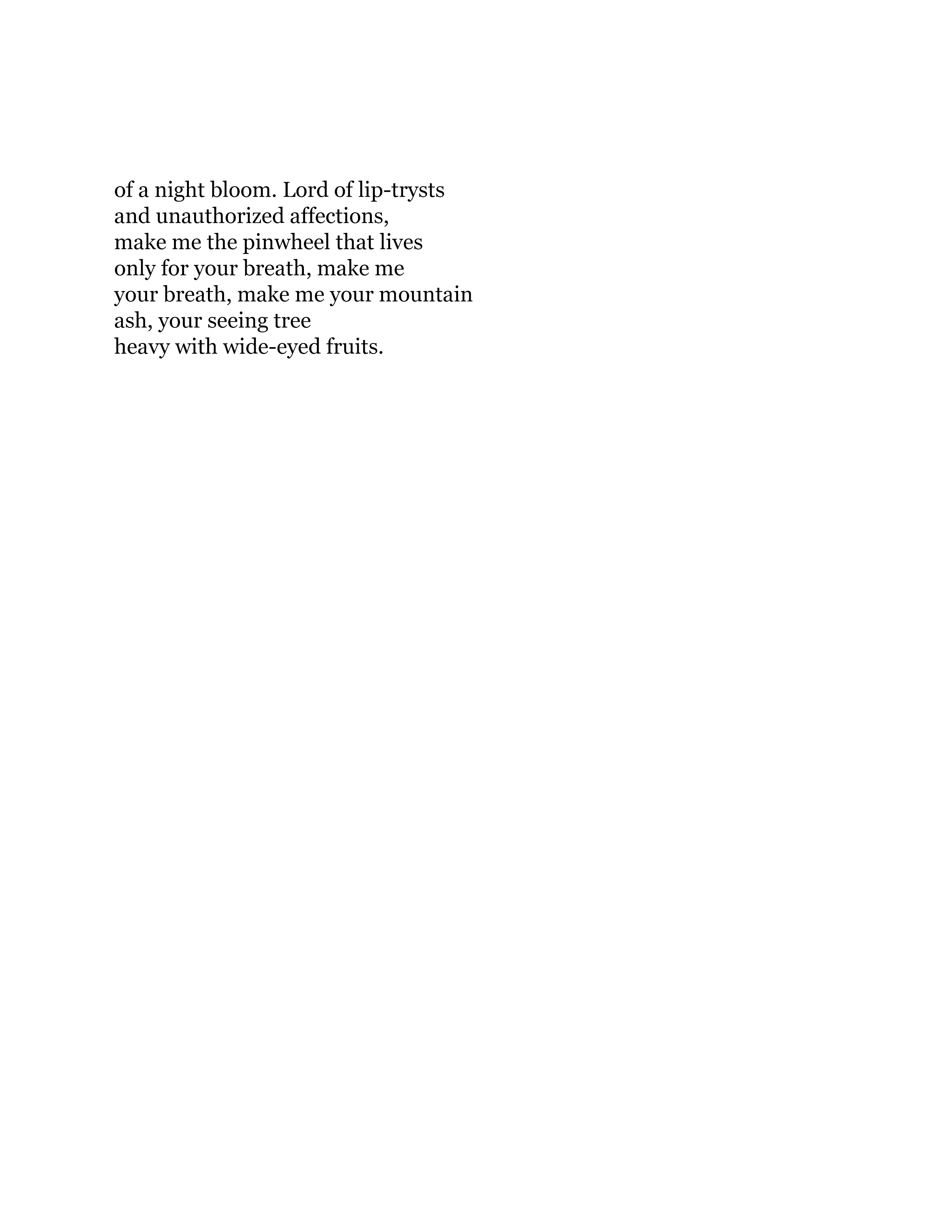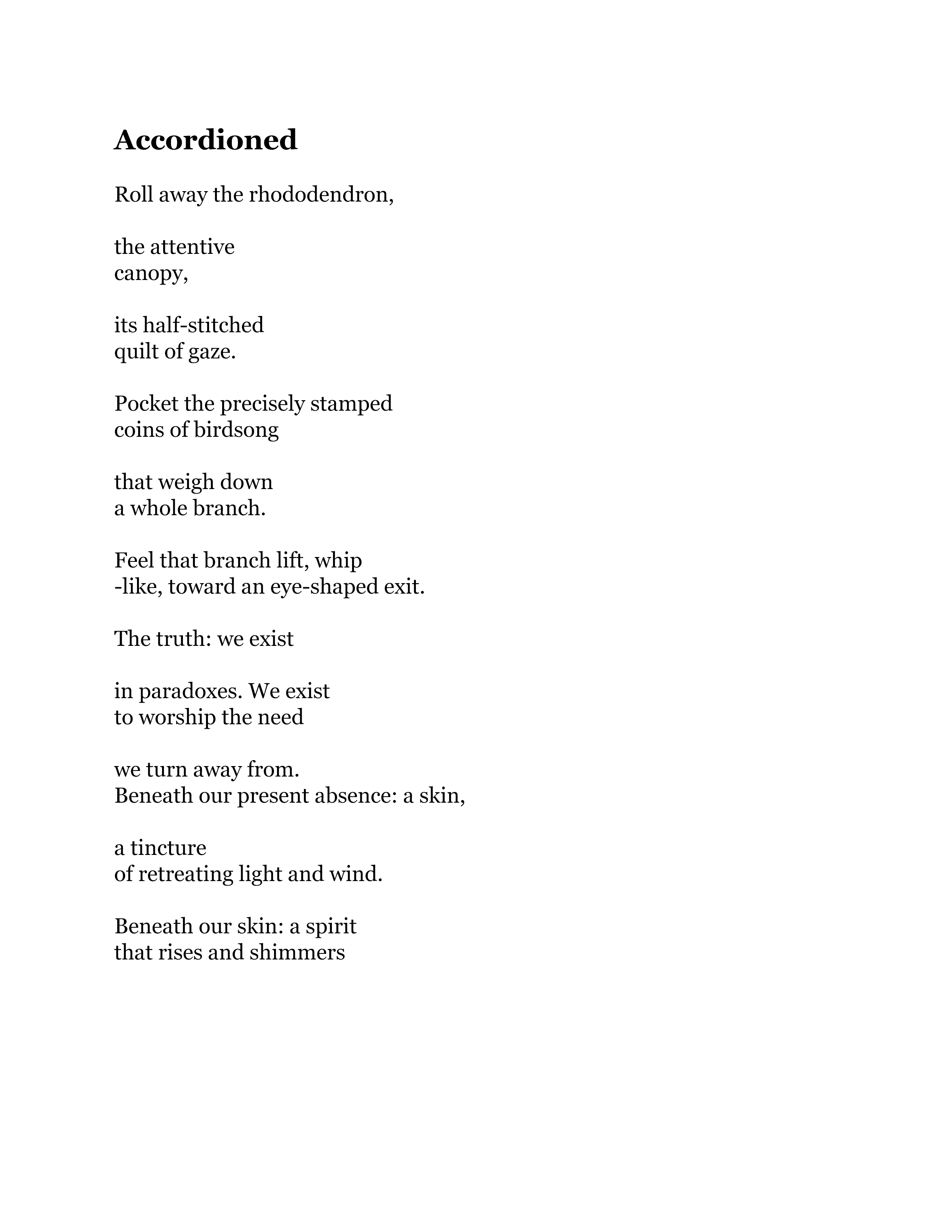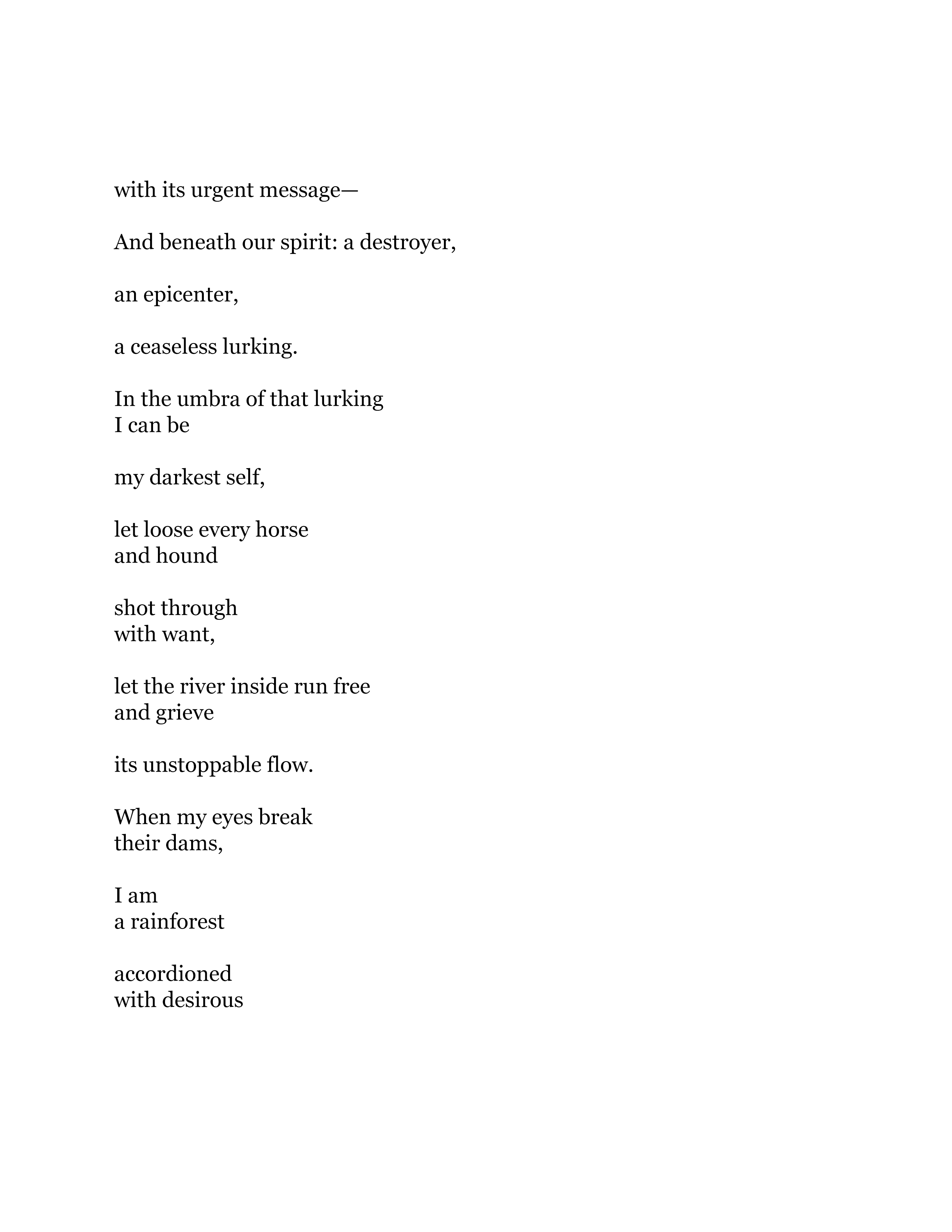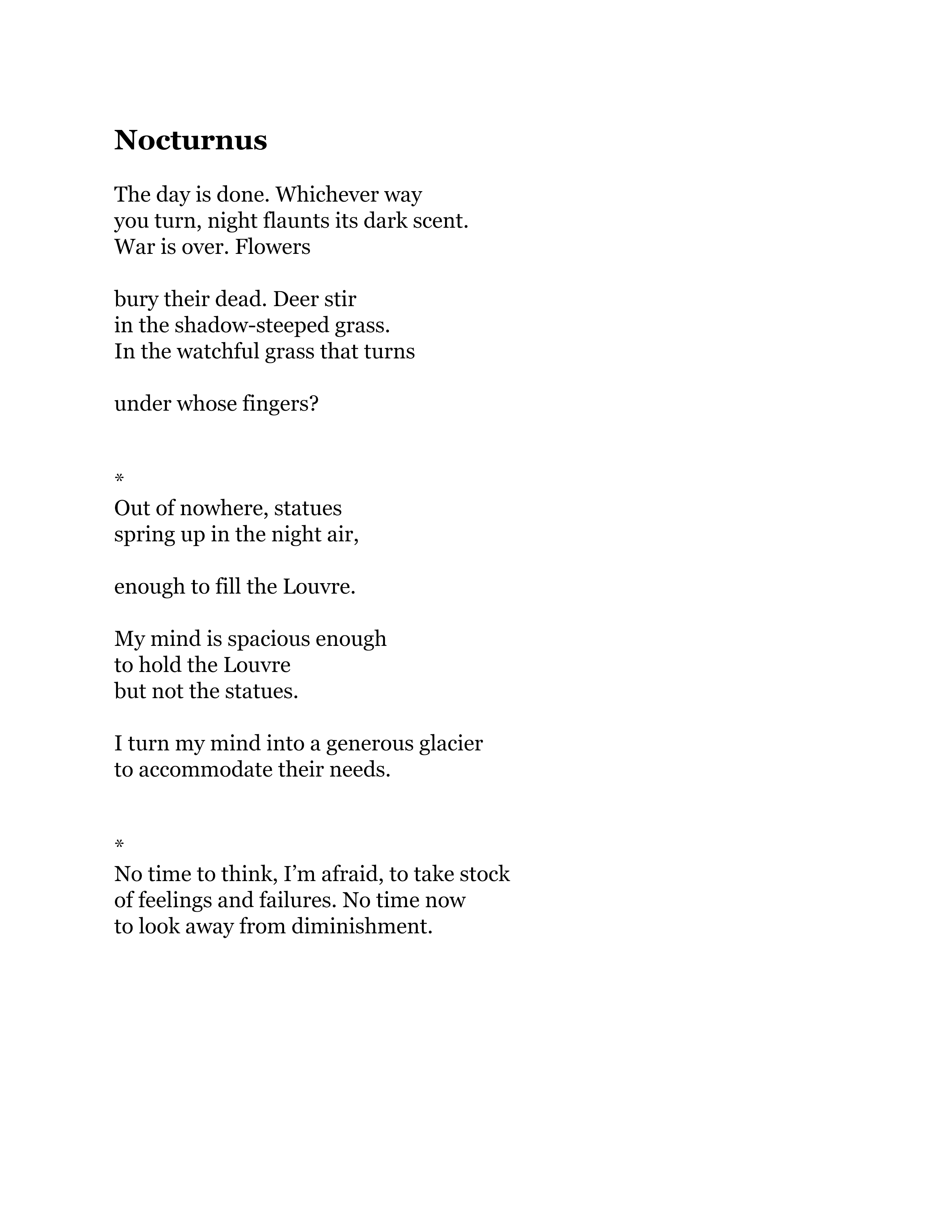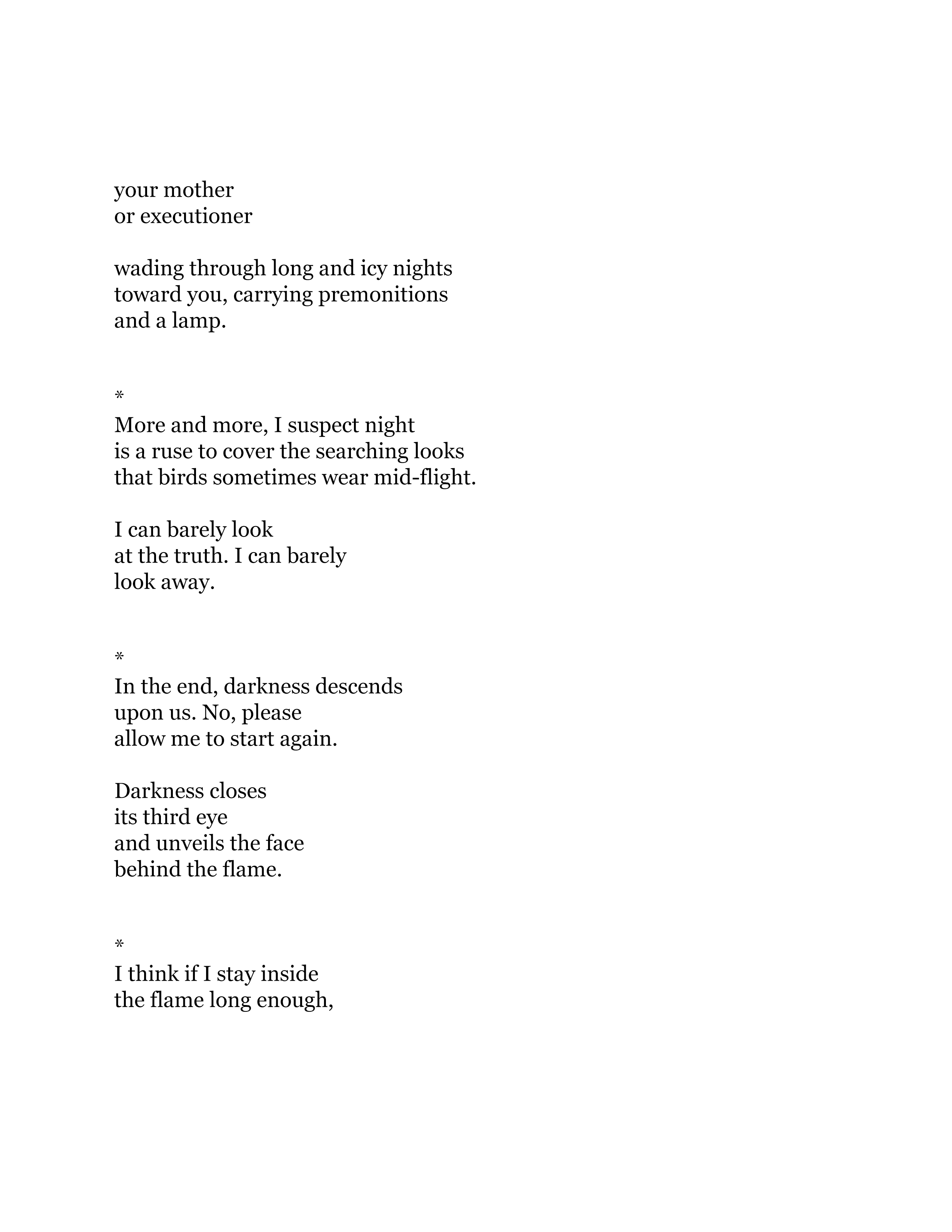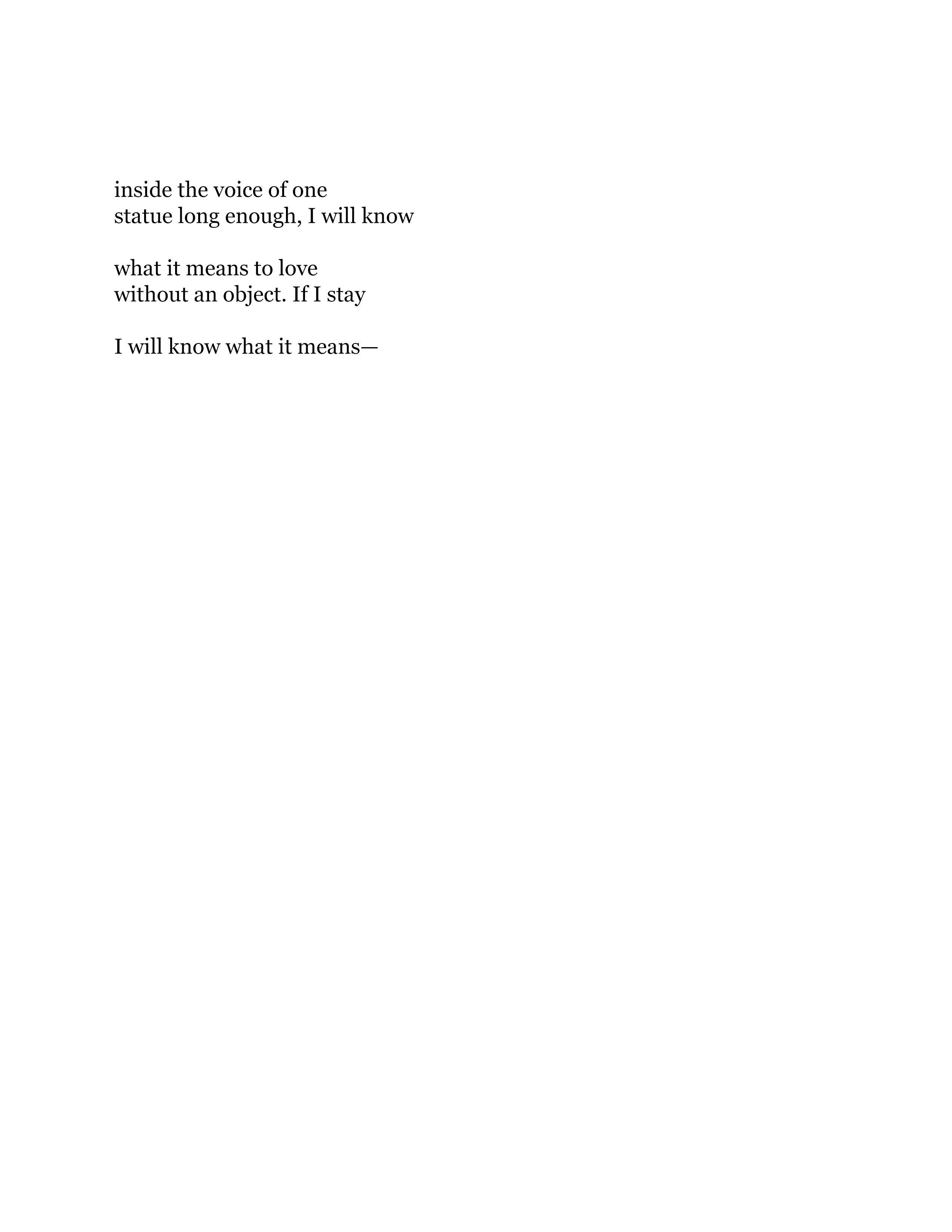4 poems by Gavin Yuan Gao
1 essay by Steven Leyva,
on the poems of Gavin Yuan Gao
Theatrical Grace
Like the opera of light and color across a harlequin’s mask, these poems perform their conscious and unconscious desires on a stage syntax. Even at their most discursive, when one feels each inch of dark a nighthawk circles in, these poems let the applause of euphony have its earned time. Rightfully, the reader might call this “play,” given the rapid exchange of assonance and consonance among the lines, but it is “play” in the most theatrical sense.
The lovers that seem to wait in the wings of the poems are not so much seen as much as their gaze is felt. “Accordioned” and “The Rivers Let Me Go Where I Wanted,” let the natural world organize and transform those gazes and the feelings the speakers of the poems are confronting. “How there is an egret that’s always lived in regret,” is one such example from “The Rivers Let Me Go Where I Wanted.” So playfulness within a play (staging), is the thing that sings in these poems. Hence the longing that exists in most operas, exists in these lines.
Longing, however powerful, isn’t enough to move the imagination of the reader, and the speakers of these poems know it. Attentive line work and sharply satisfying syntax builds trust throughout the lines and creates pleasure for the reader. A pleasure, I will say, that doesn’t diminish on multiple reads. “Psalm” lets the anaphora of “Lord of…” ground and renew the reader's expectations. One never knows quite what volta of faith, what oath this poem might make. But, there is little doubt that the simple violin of sincerity is playing its arpeggios.
Closer then to the sincerity of prayer than the earnestness of a described sunrise, but there is light both inner and outer either way. And why not? Does the reader not come to poems expecting to see more clearly, to hear what couldn’t be heard before. The final poem “Nocturnus” ends with an admission of future enlightenment “I will know what it means –,” and even if that is stated plainly enough to invite irony, it is still stated as an act of faith.
Stay in these poems long enough, and you too, “will know / what it means to love / without an object.” Amen each line break seems to echo.



